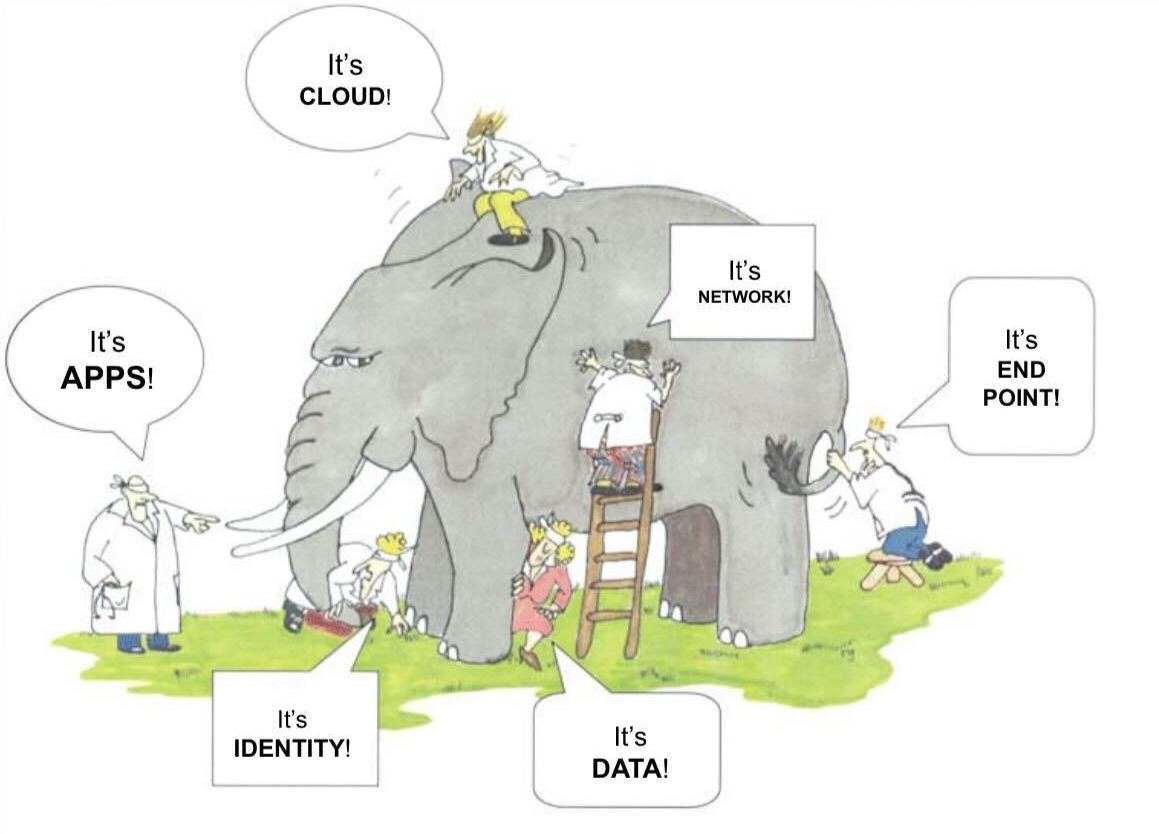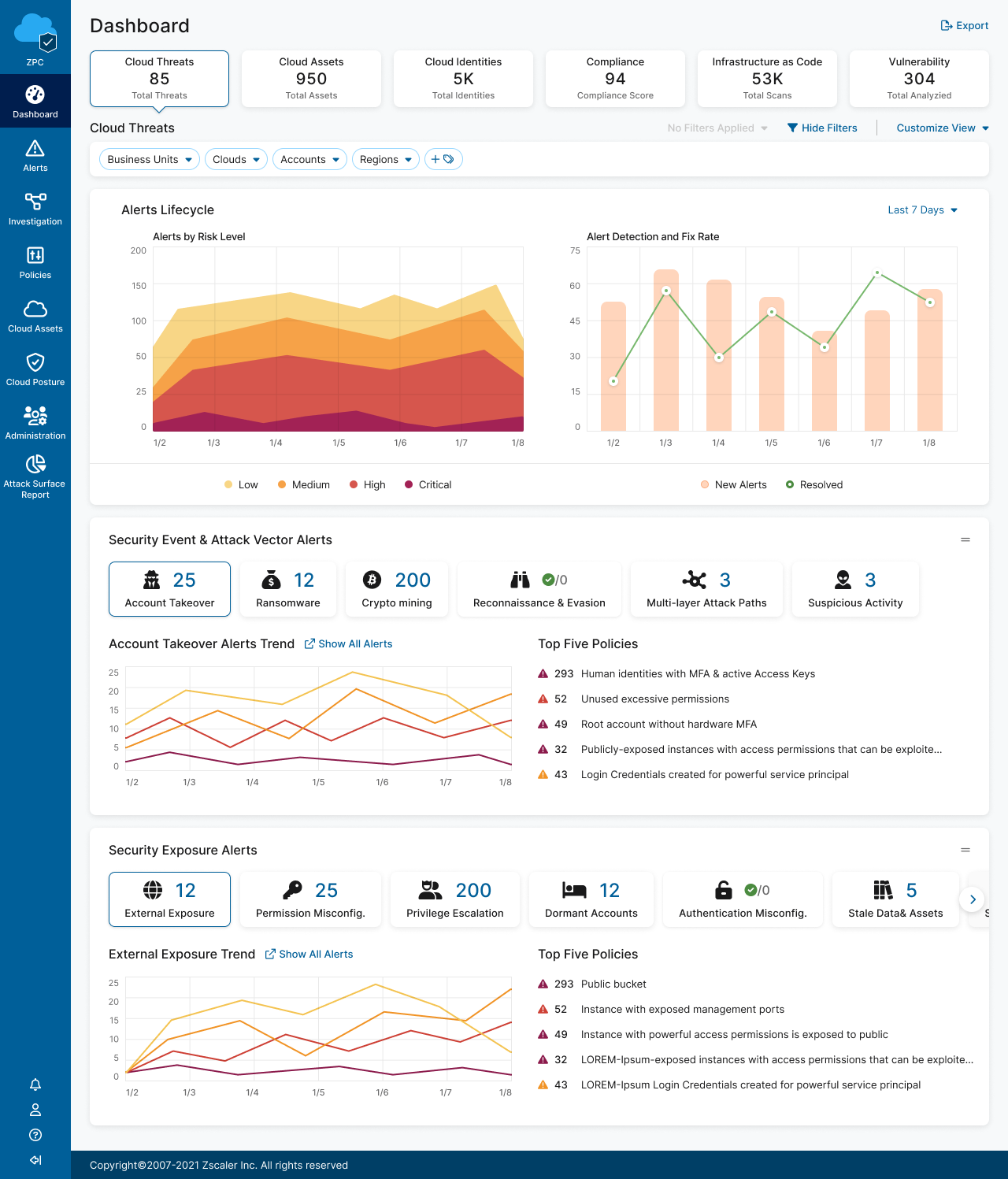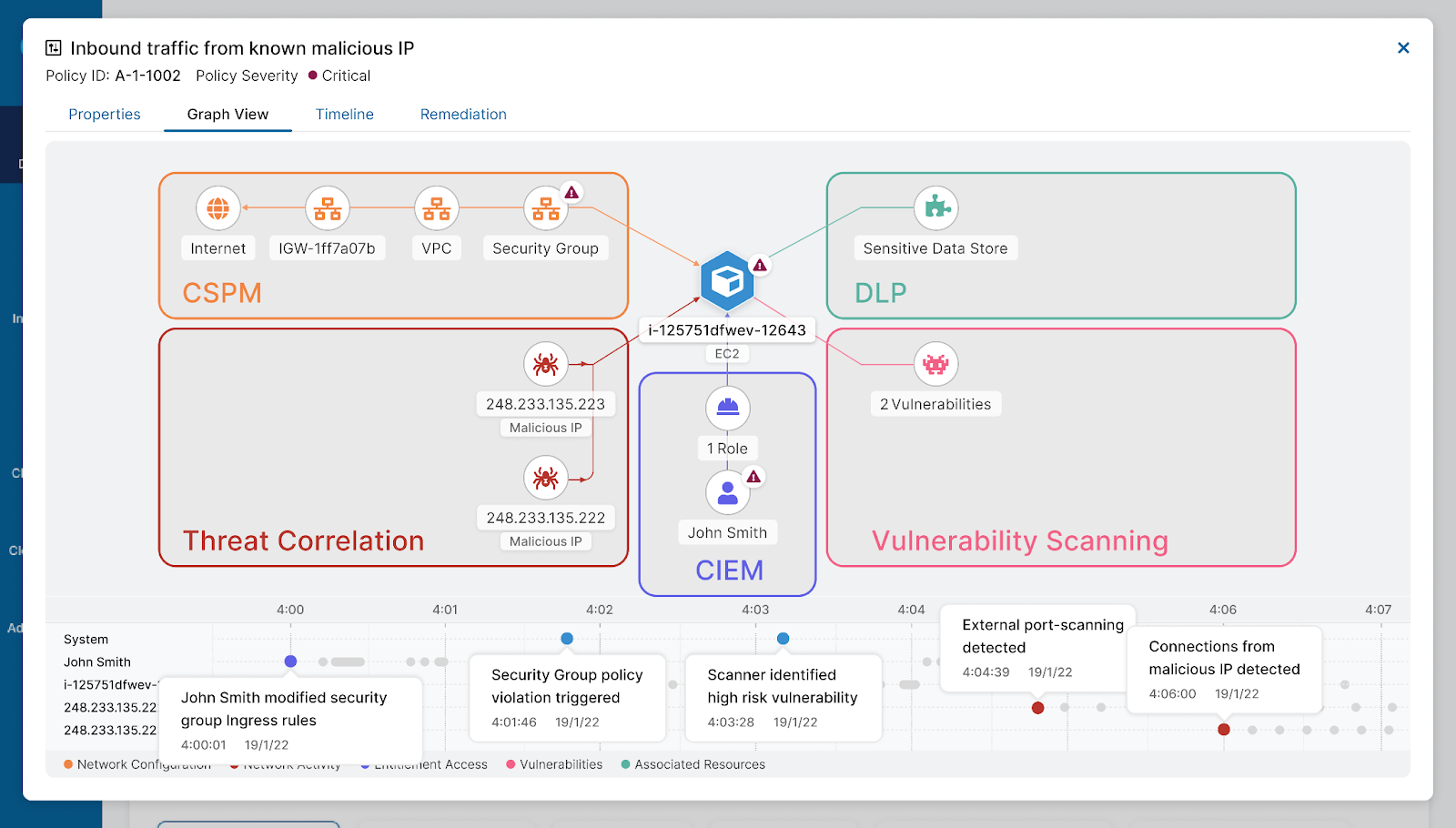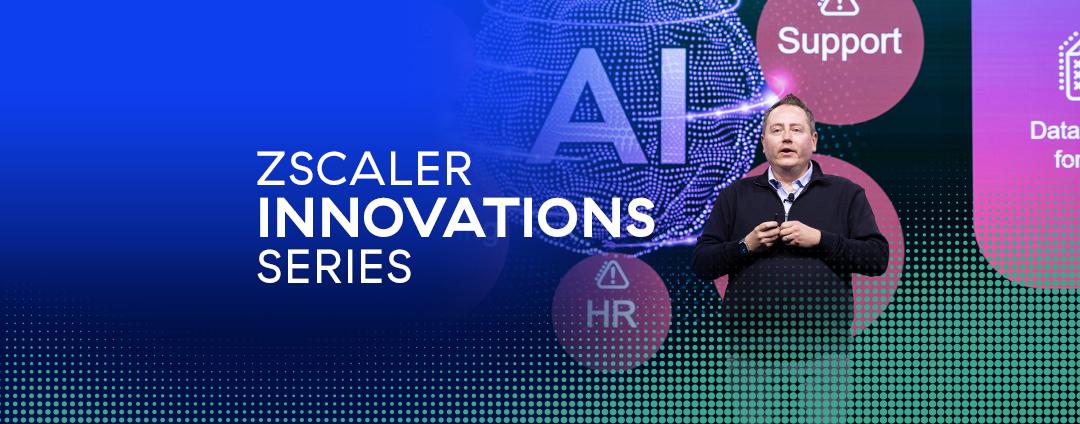Organizations of all sizes are rapidly increasing their multicloud footprint by adopting and implementing a growing number of cloud-based applications and services. One report estimates that a whopping 89% of companies that have adopted the cloud have chosen a multicloud approach. Multicloud environments are complex, and managing security in such a complex environment can be a real struggle for security teams.
Moreover, bad actors use sophisticated techniques to exploit several security weaknesses to breach organizations. These weaknesses can include misconfigurations, unpatched vulnerabilities, overly permissive access policies, and more. Each may present only a low risk in isolation—but when combined, they create an exploitable chain of weaknesses that drive a high risk of breach.

Fig: Challenges with legacy security approach and solutions
Security teams face the dual challenges of increasing operational complexity and evolving threat landscape while securing cloud environments. This is further exaggerated by the shortage of skills as security teams rarely have the time or resources to stay informed on current developments and attack techniques. Proactively securing or effectively responding to security incidents is even more difficult by the lack of attack surface visibility and insufficient context around risk and threat intelligence. To counter this situation, organizations often deploy a multitude of tools and strategies. But this further complicates the situation as security teams are overwhelmed with:
- A large volume of alerts from multiple sources with equal weightage and importance
- Security blind spots caused by using disparate tools
- Lack of a single source of truth
- Identifying and prioritizing hidden critical risk
- Time-consuming manual risk correlation that increases MTTR
- Increased cost due to multiple point solutions
Why is advanced threat and risk correlation essential?
It’s a simple fact that more tools lead to more noise. To efficiently identify, triage, and remediate existing and potential security issues before they have the chance to do real damage, security teams require a way to properly separate and focus on true risk or the “real problem” from the many sources of noise. Security departments, especially SOC teams, need a single centralized platform with an effective threat correlation architecture that analyzes the entire cloud estate for threats and incidents.
Smarter through risk and threat correlation
CNAPP solutions like posture control with advanced threat and risk correlation act as a catalyst to help to tackle challenges faced by security teams and protect organizations from adversaries. Security teams get a unique insight into real-world risk and attack vector intel in their cloud estate that is enriched with security context from world-renowned Zscaler ThreatLabz researchers allowing them to focus on what matters most: reducing risk and stopping breaches.
It works in three steps:
- CNAPP empowers SecOps to effortlessly visualize and analyze enormous security data from the entire cloud estate.
- It aggregates and transforms data into meaningful insights, filters out the noise, and uncovers hidden risks or attack vectors that could lead to a compromise or breach.
- Enables the security team to focus on and remediate issues that matter most. This enhances consistent collaboration and easy cross-team coordination to reduce MTTR.

Fig: Risk visualization with advanced risk and threat correlation and posture control
The outcome:
- Comprehensive visibility and control: Security teams get a complete insight into infrastructure with a single interface.
- Adaptive risk intelligence: Automatically correlate multiple low signals to uncover hidden risks or underlying attacks.
- Reduced complexity: Limited, contextual, severity-based real-time alerts to investigate critical issues.
- Improved productivity: Faster response for cloud security events with guided remediations.

Fig: Posture control - Advanced risk and threat correlation
Learn more
Want to explore how CNAPP can help to identify and fix critical risks and security issues?
Schedule a 20-minute posture control demo with an overview of powerful advanced threat and risk correlation capabilities from our security experts.
Also, watch our on-demand webinar - Beyond Misconfigurations: Correlating Threats to Truly Understand Your Cloud Risk to learn how an effective cloud native application protection platform (CNAPP) can correlate and minimize data breach risks while simplifying multicloud security.





